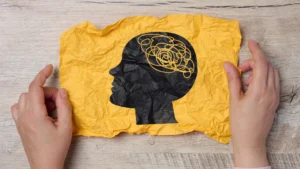The Importance of Crime Scene Photography
Crime scene photography is the art of taking pictures at a crime scene. It is a form of documentary photography, which records real-world events.
In the world of law enforcement, crime scene photography plays a vital role in the documentation and investigation of crimes. This type of photography requires a specific skillset and knowledge to properly capture the evidence and details of a crime scene in a true and accurate form. In this article, we’ll explore the basics of crime scene photography, from the camera equipment and techniques used, to the importance of this field in solving crimes and how you can learn more in depth techniques in our Crime Scene Photography Course.
Crime scene photography is both an art and a science, requiring the photographer to have both technical skills and an eye for detail.
The Importance of Documenting a Crime Scene
The benefits of photo documentation are vast, but often go unnoticed. When a crime scene is photographed, it provides a permanent record of the scene that can be used for future reference in court. This is especially helpful when a crime scene is complex or if there is a possibility that evidence may be disturbed. Photography can be used to document the condition of evidence, position, and relativity to the crime.
This can be helpful in finding clues that may have been missed and in reconstructing the events that took place. Photography has also been used to identify suspects and witnesses, as well as to track the movements of people and vehicles.
Photographs can be used to establish timelines, piece together what happened and prove or refute suspect and witness stories.
The Steps of Photo Documentation
The first step is to take overall shots of the scene, from different angles. These shots should be wide enough to show the entire area where the crime took place and establish the scene. Make sure to capture the building, house or address associated with the crime. Do your best to take the photos looking straight at the building. More details on this are covered in our crime scene photography course.
In addition to these wide shots, intermediate or medium shots are necessary before taking close-ups of important evidence. This helps establish the placement of objects and people in the crime scene.
Proper lighting is critical when taking evidentiary photos, even if the crime scene is outdoors. Avoid shadows and ensure that the pictures are clear and in focus. The photos should also be taken in sequence. Do no delete evidentiary photos – ever. If you delete a bad photo, you could be accused of deleting exculpatory evidence, even if nothing was captured in the photo. It’s not worth it.
Be sure to capture photos of all the physical evidence, such as bloodstains, fingerprints, shoeprints, tire tracks and weapons. Capture photos of the victim. This includes close-ups of the injuries, as well as any bruises, cuts, or scrapes. MAKE SURE TO USE A SCALE!
It is important to document the position of the body at a homicide, as well as any objects that may be near it.
The Importance of Accurate Documentation
How important is it to have accurate documentation at a crime scene? Without proper documentation, key evidence could be missed which could impact the outcome of an investigation. Photography is a crucial element in crime scene documentation. All too often, detectives are called to a crime scene only to find that there is no photographic documentation of the scene prior to their arrival. Don’t be that guy.
If there is a murder, for example, the first responders need to take photos of the entire scene, including the body, before it is moved. This is crucial to document the position of the body, any weapons, and any other evidence that may be present. Once the body is removed, that evidence is gone and can never be recaptured.
Photo documentation can be the difference between catching a criminal and letting them go free. Some crimes are solved simply because of the photo documentation. In other cases, it may not be the sole factor, but it can be essential in building a case against the suspect. In either situation, it is clear that accurate crime scene photography is crucial in solving crimes.
It is of important note that your photographs can prove the innocence of a suspect through exculpatory evidence.This cannot be stated enough.
Photographs are often the most important evidence in a criminal case. They can provide crucial information about what happened, where it happened, and who was involved. Crime scene photography is not just about taking pictures of dead bodies and bloodstains. It is also about capturing the small details that can make all the difference in a criminal investigation. Every crime scene is different, and every photograph has the potential to provide vital information. That is why it is so important to have a skilled and experienced photographer on the scene.
In conclusion, when patrol officers arrive at a crime scene, you should begin to document the scene with photographs. Taking photos of a crime scene is a very important part of the investigation process. The photos will be used to help piece together what happened and to identify any possible suspects.
Crime Scene Photography for Patrol
If you’re a patrol officer, being able to take good crime scene photos can be a real asset. Our Crime Scene Photography course will teach you how to take better photos at crime scenes, improving your evidence collection process. The online course is easy to use and helps you understand how to capture the right images, no matter the situation.





